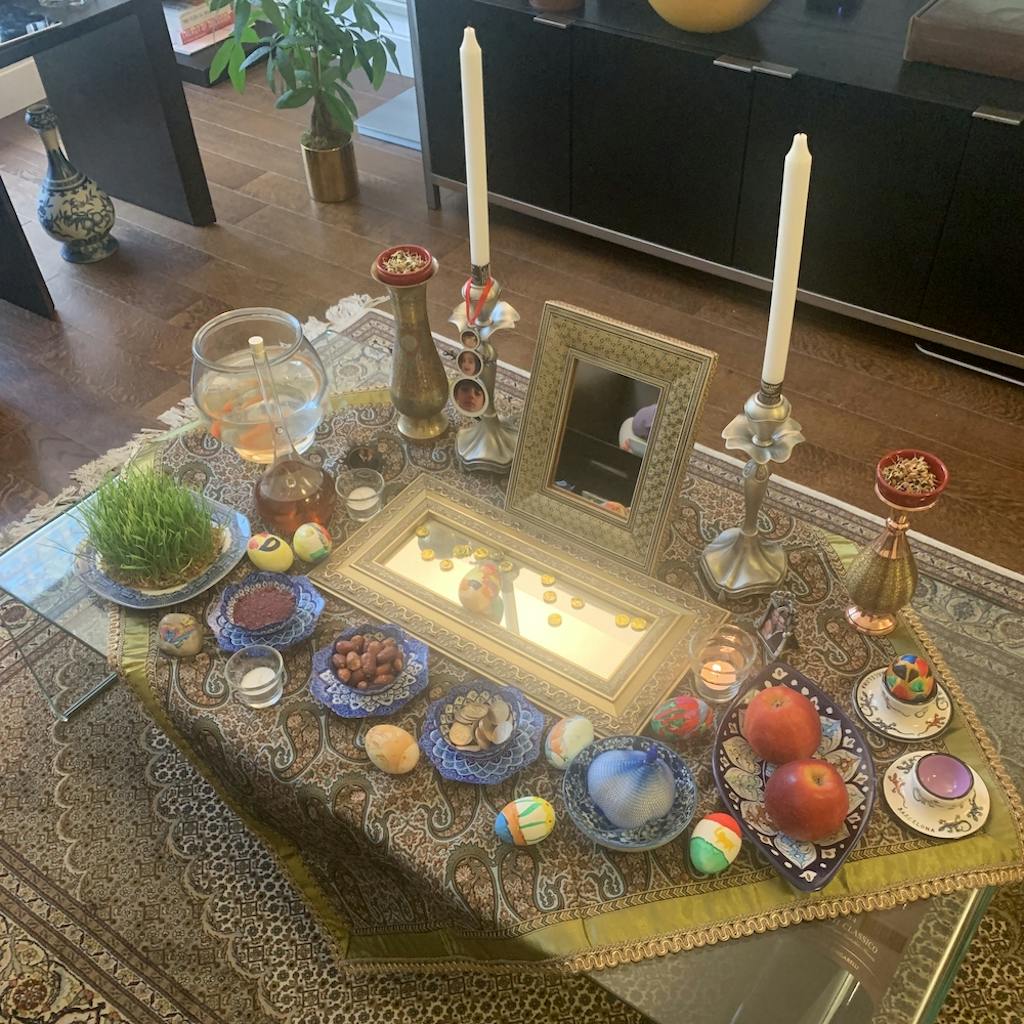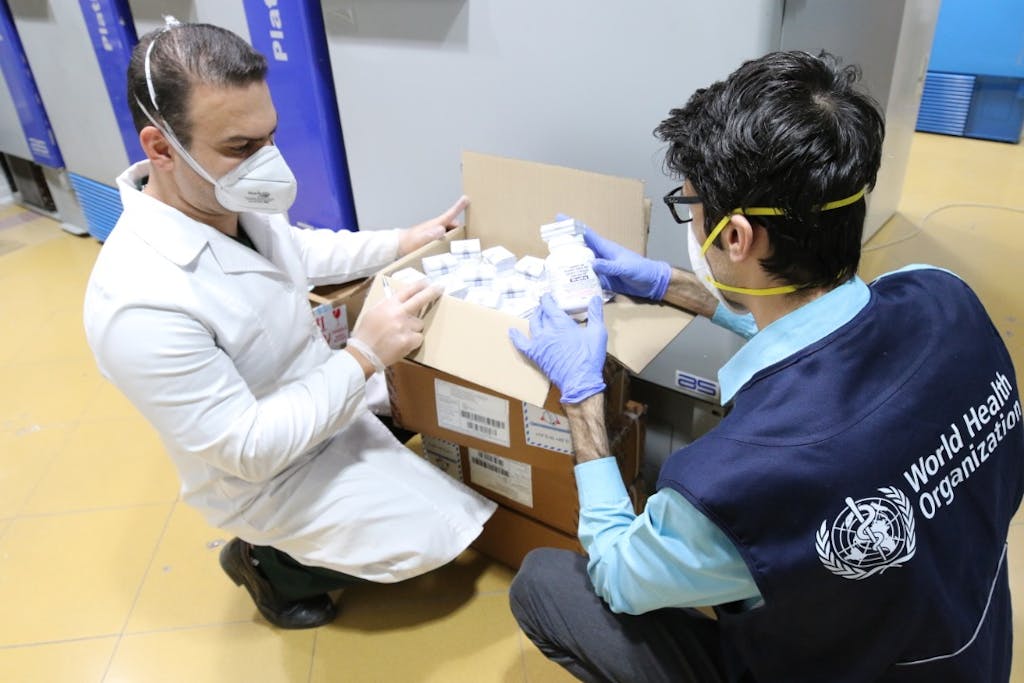Mariam Khan is a UN Foundation staffer in New York City, which became an American epicenter for COVID-19 in March. Her relatives are witnessing the virus’ scourge in Iran, which became a hotspot in February. Both countries are now battling a resurgence.
When my family in Iran first called to tell me about their COVID-19 outbreak, I never thought it would upend my life halfway across the world in just a matter of weeks.
For the last 40 years, my family has been split between Iran and the United States. Since my mom left Iran in 1975, my parents and I have only been able to visit a handful of times. Growing up, I remember using calling cards to maintain a connection with my grandparents, aunts, uncles, and cousins despite the distance.
To be honest, I wasn’t too alarmed at first. My family here in the States is all too used to hearing stories of hardship from our loved ones in Iran – whether it’s the ever-escalating threat of war or increased sanctions that make everyday living difficult.
But talking to my family in Iran earlier this year, I quickly realized this virus was different. Even before we were aware of COVID-19’s presence in the U.S., I was hearing stories from my relatives about panic spreading almost as quickly as the virus itself. By March, it had reached the country’s leaders: 23 members of the Iranian parliament were infected.
What really marked a turning point — when my relatives said people grasped how grave the situation had become — was when the government decided to close religious sites in the country’s holy cities, including Qom and Mashhad. Nothing had ever prompted the government to close these sites before, and this decision itself convinced even the most hardened skeptics to realize the virus’ severity.
COVID-19 hit Iran at a particularly busy and usually festive time of year between the anniversary of the Islamic Revolution in early February and Nooruz (or the New Year) in late March. In fact, the country reported its first case of the virus just two days before national parliamentary elections. Despite growing concern, some Iranians still came out to vote, but overall voter turnout was the lowest in history.
Nooruz — a holiday known for elaborate cooking and week-long celebrations — was ultimately cancelled in Iran. But like so many people around the world, my relatives are resilient. We connected virtually to share meals, as well as some questionable dance moves and photos of our haft-sins, a ceremonial table set for the New Year. Across Tehran, where most of my relatives live, musicians even took to their balconies and rooftops to entertain cities silenced by the virus.

Daily life for my family in Iran and in New York, where I live, actually looks very similar these days. Like others who are lucky enough to be able to, I’m working from home and adjusting to my new routine. Living in a city that was an early epicenter for the virus in the U.S. has been challenging. In the springtime, at its worst, the city felt like a ghost town where sirens were the only sounds we heard for hours on end. All but one of my neighbors on the floor of my apartment building fled the city.
But like other tragedies that have befallen New York, this crisis has also brought us closer together. As I write this, I can hear my 82-year-old neighbor setting up for our weekly hallway happy hour, where we sit 6 feet apart, drink wine, and talk about her days as a professor in Paris.
I was recently emailing with my cousin in Iran — a writer, actor, and professor who lives in Tehran — who articulated the new reality we’re all facing — for all of us, no matter where you were born:
“The world we were living in before is gone, but maybe we can see some good come out of this.
I think I remain hopeful because I need something to keep myself going,
From the doctors and nurses in the hospitals to the restaurants feeding our communities for free — we’re all looking for something to keep our spirits up.”
Despite the optimism my cousin described, it’s impossible not to feel disheartened by the recent news that the virus is resurging in the U.S. and Iran. According to the latest data from the World Health Organization (WHO), the U.S. is home to the planet’s largest number of confirmed COVID-19 cases with more than 3 million and counting. Iran, meanwhile, reported its highest single-day death toll earlier this week.

Watching this virus endanger and disrupt the lives of my loved ones both here in the U.S. and in Iran reminds me why we need the WHO to fight this pandemic. It’s the organization with the expertise, reach, and network of partners to lead a global response for a disease that knows no borders.
That’s why I’m proud to work for an organization that supports the United Nations and the WHO’s mission to help vulnerable families everywhere — including Iran. Here at the UN Foundation, we’ve rallied more than half a million people behind our COVID-19 Solidarity Response Fund for WHO. Thanks in part to support for yhis growing solidarity movement, WHO has already shipped personal protective equipment — such as masks, face shields, and goggles — to more than 133 countries. In Iran, the agency has delivered more than 7.5 tons of medical equipment and supplies to support health care workers responding to the outbreak, as well as more than 100,000 testing kits.
Like my cousin, I still have hope — hope that we will emerge from this crisis with a deeper faith in the power of solidarity and global action.
I write this having recently found out that I myself recovered from COVID-19 with enough antibodies to donate plasma to those who are still critically ill right in my own city — a reminder that each one of us can do something to help others during times of crisis.
Mariam Khan is a Public Affairs Events Manager at the United Nations Foundation. Our staff includes first-generation immigrants like Mariam and citizens of more than a dozen countries who are working to mobilize support for the United Nations.
Our global community of advocates and grassroots champions includes tens of thousands of people who are proud to support the mission of the UN and the pursuit of the Sustainable Development Goals (SDGs).



 View All Blog Posts
View All Blog Posts

